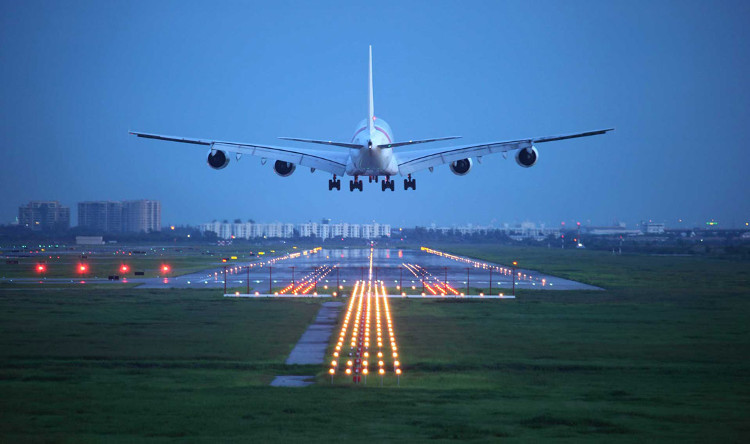Rising temperatures make it difficult for aircraft to take off in the coming decades
Rising temperatures due to global warming will make it harder for aircraft to take off in the coming decades.
This warning was published in a study published by US researchers in the journal 'Climatic Change' on July 13.
Scientists warn if the Earth continues to warm up, on the hottest days, some planes will have to reduce up to 4% of the load and fuel volume before taking off.

The hottest time of the day, 10-30% of the aircraft carrying enough load may have to reduce the amount of fuel.
The 4% reduction in load could be equivalent to a 12 or 13 passenger reduction on an average 160-seat passenger plane.
At the hottest times of the day, 10-30% of fully loaded aircraft may have to reduce the amount of fuel, passengers or goods, or have to wait until the temperature drops to take off.
According to the study, when the temperature rises, the air will become thinner and the repulsive force will be reduced by reducing air impact on the aircraft. Depending on many factors such as aircraft type and runway length, a plane full of passengers or cargo may not take off safely if the temperature rises too high. This problem will become especially serious in prolonged heat waves.
Research on the forecast that by 2080, the annual maximum daytime temperature at airports around the world will increase by 4-8 degrees C.
Study author Ethan Coffel said the load limitations may cause significant damage to airlines as well as affect the operation of this industry around the world.
The author proposes to bring climate change into the medium and long term plans as soon as possible, and adaptation efforts will be more effective.

Climate change can cause dangerous disturbances and reverse winds that lead to long flight times.
Research co-author and climate expert Radley Horton said some of these negative impacts could be reduced by using new engines, redesigning the fuselage or widening the runway.
The study also notes that rising sea levels are in danger of flooding some key airports.
Meanwhile, many other researchers warn that climate change can cause dangerous and reverse winds that make time fly longer.
On June 20, American Airlines had to cancel 43 flights to and from Phoenix Sky Harbor Airport when the temperature tended to rise to a record of 49 degrees C.
- The global warming made it harder for aircraft to take off
- Increased temperatures make migratory birds late
- Global warming can erase the Olympics since 2085
- US next-generation test aircraft
- Global temperatures rise, what will happen?
- Why is it difficult to find the missing plane?
- MIT built an electric-only aircraft, with no mechanical elements
- Multifunction aircraft
- Climate change threatens cultural heritage
- Big cities in Asia will be 'unprecedented extreme' weather
- Arctic is about to have high speed internet
- Coming soon to operate the first unmanned aircraft in the world
 Is the magnetic North Pole shift dangerous to humanity?
Is the magnetic North Pole shift dangerous to humanity? Washington legalizes the recycling of human bodies into fertilizer
Washington legalizes the recycling of human bodies into fertilizer Lightning stone - the mysterious guest
Lightning stone - the mysterious guest Stunned by the mysterious sunset, strange appearance
Stunned by the mysterious sunset, strange appearance Chinese hypersonic aircraft prototype reaches Mach 6 speed
Chinese hypersonic aircraft prototype reaches Mach 6 speed  NASA funds $11.5 million in research on future aircraft
NASA funds $11.5 million in research on future aircraft  AI system helps aircraft 'cope' with turbulence
AI system helps aircraft 'cope' with turbulence  Supersonic drone with speed up to 6,174km/h
Supersonic drone with speed up to 6,174km/h  NASA tests X-59 supersonic aircraft engine for the first time
NASA tests X-59 supersonic aircraft engine for the first time  Scientists plan to turn dead birds into drones
Scientists plan to turn dead birds into drones 